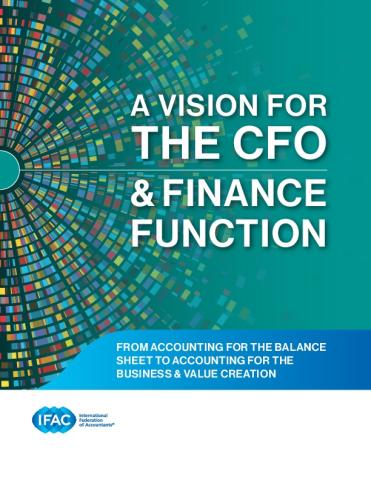Are you ready to take your accounting career to the next level? The role of an accountant is changing fast, and being future fit means more than just crunching numbers.
You need to adapt, learn new skills, and think strategically to stay ahead. Curious about what key roles you’ll need to master to thrive in the future? Keep reading to discover how you can become the accountant every business will rely on tomorrow.

Credit: askfilo.com
Evolving Role Of Accountants
The role of accountants is changing fast. They no longer just manage numbers and tax forms. Accountants now play a bigger part in business decisions and strategy. This shift demands new skills and ways of thinking. Understanding this change helps prepare for the future of accounting.
From Traditional To Strategic Partner
Accountants used to focus mainly on bookkeeping and compliance. They ensured that financial records were accurate and taxes paid on time. Now, they act as strategic partners. They analyze data to guide business growth and reduce risks. Their advice helps leaders make smart choices. This role requires strong communication and business skills.
Impact Of Technology On Accounting
Technology transforms how accountants work. Automation handles repetitive tasks like data entry. Cloud software allows real-time access to financial data. Artificial intelligence helps detect errors and fraud faster. Accountants use these tools to save time and increase accuracy. Technology also creates new job opportunities in data analysis and cybersecurity.
Core Technical Skills
The core technical skills of a future fit accountant are crucial. These skills ensure accuracy and efficiency in financial tasks. They help accountants handle complex data and adapt to new tools. Building strong technical skills leads to better decision-making and improved business insights.
Advanced Financial Reporting
Advanced financial reporting goes beyond basic statements. It involves detailed analysis and clear presentation of financial data. Accountants use these skills to create reports that support strategic decisions. Precision and clarity are key in this role. Understanding regulations and standards is also essential.
Data Analytics And Interpretation
Data analytics helps accountants find patterns in numbers. They turn raw data into useful information. This skill allows them to predict trends and spot risks early. Good interpretation guides companies to smarter financial choices. Accountants must be comfortable working with large data sets.
Automation And Software Proficiency
Automation reduces repetitive tasks in accounting. Future fit accountants use software to save time and avoid errors. Knowing various accounting tools is important. Skills in software like Excel, ERP systems, and cloud platforms are required. This knowledge helps improve workflow and accuracy.
Critical Soft Skills
Critical soft skills shape the success of future fit accountants. These skills help accountants work well with others and handle change. They go beyond numbers and technical knowledge. Soft skills make accountants valuable in any business setting.
Effective Communication
Clear communication is vital for accountants. They must explain complex data in simple words. Listening carefully helps them understand clients’ needs. Good communication avoids mistakes and builds trust. It also helps share ideas clearly with teams and leaders.
Problem Solving And Adaptability
Accountants face new challenges every day. They need strong problem-solving skills to find quick solutions. Being flexible helps them adjust to new rules and technology. Adaptable accountants can handle unexpected changes without stress. This skill keeps their work accurate and relevant.
Collaboration And Leadership
Working well with others boosts team success. Accountants often work in groups to complete projects. They share knowledge and support team goals. Leadership means guiding others with respect and patience. Future fit accountants inspire confidence and cooperation in teams.

Credit: www.ifac.org
Digital Transformation Competencies
Digital transformation competencies are vital for future fit accountants. These skills help accountants adapt to new technology and improve their work. Accountants must understand digital tools and trends to stay relevant. They need to use technology to increase accuracy and efficiency.
Being confident with digital tools is no longer optional. It is part of the accountant’s core skill set. This section covers key digital skills future accountants must develop.
Embracing Artificial Intelligence
Artificial intelligence (AI) changes how accountants work every day. AI helps automate routine tasks like data entry and report generation. This saves time and reduces errors. Accountants who use AI can focus on analysis and decision-making. Understanding AI basics allows accountants to improve their services.
Cybersecurity Awareness
Accountants handle sensitive financial data. Protecting this information is critical. Cybersecurity awareness helps prevent data breaches and fraud. Accountants must know how to keep data safe. This includes using strong passwords and recognizing phishing attempts. Cybersecurity skills build trust with clients and employers.
Blockchain And Emerging Technologies
Blockchain offers new ways to record and verify transactions. It increases transparency and reduces fraud risks. Accountants should learn how blockchain works and its benefits. Other emerging technologies also impact accounting practices. Staying informed about new tools helps accountants stay competitive.
Sustainability And Ethical Considerations
Sustainability and ethics are key for future fit accountants. They must balance profit with planet and people. This means focusing on long-term value beyond just numbers. Accountants play a vital role in guiding businesses to act responsibly. Their work impacts society and the environment.
Future accountants must understand environmental, social, and governance factors. They ensure companies report these clearly and honestly. Ethical behavior builds trust and supports fair business practices. Accountants uphold standards that protect stakeholders and promote transparency.
Integrating Esg Reporting
ESG stands for environmental, social, and governance. Accountants gather and analyze data on these areas. They help companies measure their impact on the environment and society. Accurate ESG reporting attracts investors and meets legal demands. It also drives better business decisions focused on sustainability.
Future fit accountants use new tools to track ESG metrics. They collaborate with teams to collect reliable information. Clear ESG reports show a company’s commitment to responsible growth. This transparency benefits customers, employees, and communities.
Maintaining Professional Integrity
Integrity is the foundation of accounting. Future fit accountants follow strict ethical codes. They report facts honestly without bias or pressure. This protects the reputation of the company and the profession.
Accountants must resist shortcuts or dishonest practices. They act as watchdogs against fraud and corruption. Upholding integrity builds confidence among investors and regulators. Trustworthy accountants help create a fair and sustainable economy.

Credit: www.indeed.com
Continuous Learning And Development
Continuous learning and development are vital for future fit accountants. The finance world changes fast. New rules, tools, and technologies appear often. Accountants must keep up to stay useful and competitive.
Learning does not stop after school or university. It is a daily habit. It helps accountants improve skills and adapt to new challenges. This mindset helps them offer better advice and make smart decisions.
Lifelong Learning Mindset
A lifelong learning mindset means always being curious and open to new ideas. Accountants with this mindset seek knowledge beyond their current skills. They ask questions and explore new methods. This attitude keeps their work fresh and relevant. It builds confidence and sharpens problem-solving skills.
Leveraging Online Resources And Training
Online resources make learning easy and accessible. Accountants can join webinars, watch tutorials, and take courses anytime. Many platforms offer updated content on finance and technology. This helps accountants learn at their own pace. It saves time and money compared to traditional classes. Using these tools helps accountants stay ahead in their field.
Frequently Asked Questions
What Skills Define A Future Fit Accountant?
A future fit accountant excels in technology, data analysis, and strategic thinking. They adapt quickly to digital tools and changing regulations. Strong communication and ethical standards are also crucial to navigate complex business environments effectively.
How Does Technology Impact Future Fit Accountants?
Technology enables future fit accountants to automate routine tasks, increasing efficiency. They use AI, cloud computing, and data analytics to provide deeper insights. This shift allows them to focus on strategic decision-making and advisory roles.
Why Is Adaptability Important For Future Fit Accountants?
Adaptability helps accountants manage rapid changes in regulations and technology. It ensures they stay relevant and can handle evolving business challenges. Being adaptable fosters continuous learning and innovation in their roles.
What Role Do Future Fit Accountants Play In Business Strategy?
Future fit accountants contribute by analyzing financial data to guide strategic decisions. They identify risks and opportunities, helping businesses grow sustainably. Their insights align financial goals with overall company objectives.
Conclusion
A future fit accountant plays many important roles. They use technology to improve work speed and accuracy. They analyze data to help businesses make smart choices. Communication skills help them explain numbers clearly. They must adapt to new rules and tools quickly.
Being open to learning keeps them valuable in the job. Understanding both finance and business helps them support growth. These skills make accountants ready for future challenges. Embracing these roles leads to success in a changing world.
